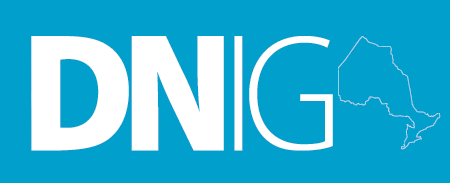Intro:
Now that all Canadians are feeling the pressure of higher food costs it is more important than ever to address the issue of food insecurity in people with diabetes.
As defined by the Government of Canada (1), food insecurity is the inability to acquire or consume an adequate diet quality or sufficient quantity of food in socially acceptable ways, or the uncertainty that one will be able to do so.
Sufficient nutritious food is essential for healthy living, and is particularly important for people at risk for, or living with diabetes. Diet, along with physical activity is key to the management of diabetes. Insufficient nutrients or an irregular or inadequate intake makes diabetes management more difficult, especially for people prescribed diabetes medication. For example, inadequate, or irregular food intake can precipitate hypoglycemia, and overeating, over time, might even contribute to the onset of some forms of diabetes (2).
Obtaining adequate nutritious food is more difficult for those managing diabetes on a low income. What advice can nurses provide to their patients with diabetes?
Some suggestions for nurses caring for people with diabetes include taking advantage of specials, shop at lower cost stores, discount stores, partner with family members or friends to buy in bulk (3).
- https://www.canada.ca/en/health-canada/services/food-nutrition/food-nutrition-surveillance/health-nutrition-surveys/canadian-community-health-survey-cchs/household-food-insecurity-canada-overview.html
- https://www.utoronto.ca/news/u-t-study-finds-food-insecurity-more-doubles-risk-developing-type-2-diabetes
- https://www.cbc.ca/news/canada/newfoundland-labrador/eating-healthy-is-hard-it-s-even-harder-for-people-who-can-barely-afford-to-eat-at-all-1.6858101
Discussion: March 18 2024
Participants: L Herlehy; M Little; M Lincoln; S Deonarine; M Perez Zambrano; M Joseph; A Moyer and members Lauren, Michelle and Mattias.
Members experience: paediatrics, Medication IT, diabetes educator, community health nurses, OR
Questions asked:
Are you finding the cost of food presents an issue for your clients, especially those trying to manage on limited income?
-Scarborough experience: Diet classes were available; Uptake on classes good
-Food banks: Availability in the area? Community nurses report frequent referrals.
-How suitable are the foods being provided: for people with diabetes?
or other specific needs, such for a person with disabilities?
What dietary resources are available in house for nurses who care for people with diabetes?(e.g. dietitian, social workers)
- Canada’s Food Guide - with multiple translations
- Dietitians of Canada
What community food programs are you aware of?
- Food Banks
- School Feeding Programs
- Diabetes Canada Classes
More information on School Programs -
Student Nutrition Programs (SNP) in Ontario are provincially led. Ontario’s Ministry of Children, Community and Social Services (MCCSS) supports Student Nutrition Programs with funding for food and consumable supplies, as well as provides direction for program standards (guidelines) to ensure the quality of the programs. There are many community partners.
Student Nutrition Ontario: https://studentnutritionontario.ca/
“Student Nutrition Ontario exists to feed students across the province. We support their success by teaching healthy habits; offering nutritious foods; and building supportive communities. We are the unified voice that connects an extensive network, enabling students to eat, learn, and succeed. We collaborate with and build capacity in local communities. We ensure best practices and resources are available.”
E.g. In Ottawa: The Ottawa Network for Education (ONFE) is the hub of a network of education and community partners committed to enriching public education in Ottawa. ONFE’s collaborative programs harness the resources of the Ottawa community to help students succeed in a rapidly changing world. Together with our partners in education, business, government and the community, ONFE has played a lead role in developing over forty innovative education programs since its inception in 1985.Lead Agency in Ottawa
ONFE is a charitable organization that collaborates with partners from education, business, government, and the community to develop enriching programs for K-12 students. Working with the four public school board, ONFE supports children and youth in English and French. We fuel kids and ignite learning, making sure all children in Ottawa have an equal start each day. No other community organization has the same reach and ability to respond and deliver much-needed programs to schools across the region (.pe.ca/a-decade-of-nutrition-metcalfe-public-schools-breakfast-program-coordinator).
https://www.uclc.ca/ Upper Canada Student Food Programs
Guidelines from Ontario Government for Feeding Programs: https://files.ontario.ca/mccss-2020-student-nutrition-program-guidelines-en-2021-11-29.pdf
Food Programs Mentioned:
- Toonies for Tummies (Food Basics)
- Community Health Centres - Food Vouchers
- Food Bank Section for those living with diabetes (question re effectiveness)-
- One member mentioned program in local area Food Bank - hand out recipe from Basic Shelf CookBook and the ingredients together). The 2011 edition is available online: https://www.cpha.ca/basic-shelf-cookbook
Effect on Practise for nurses working in diabetes:
- Community programs no social work/dietitian access
- DEPs - often set different targets for clients based on SES, ability to access healthy diet
- Marked cultural impact on managing diabetes (eg availability of traditional foods)
Online: “ Food Banks identify a 70% increase in the use of food banks since 2019.”
- What are the effects of/ impact of insufficient diet?
- Need for more information: hesitant regarding A1C. [?Potential DNIG education session]
- Language related issues concerning the Canada Food Guide. i.e. meet Spanish speaking clients at the shelter and see cultural issues regarding food available to them.
Questions about the suitability of the food available through food banks for persons with diabetes and/or the availability of resources to guide people picking up food from the shelves. Questions about the variety of being donated? Is it leftover food? Group decided there is much to be known in order to lobby/support our clients with food insecurity.
